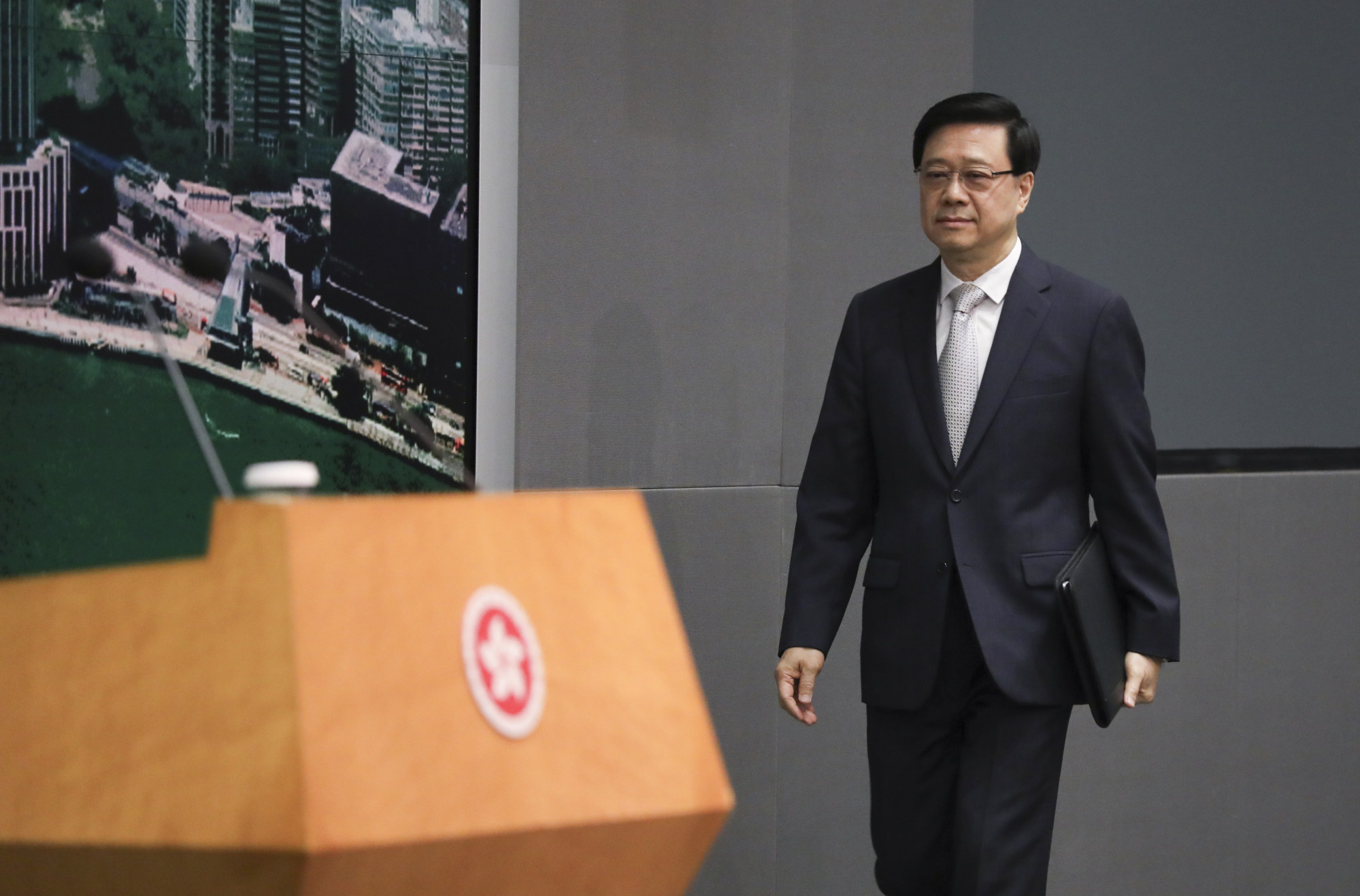A legal amendment has allowed Hong Kong’s security chief to freeze the assets of individuals suspected of national security law offences until the end of their legal proceedings, without the need to wait for court approval.
The government on Friday said changes to the implementation rules under Article 43 of the Beijing-imposed security legislation would allow the freezing notice issued by the security minister to remain valid throughout the relevant proceedings, even if the two-year limit had expired.
The move, which took effect immediately, was made by Chief Executive John Lee Ka-chiu and the Committee for Safeguarding National Security to clear legal uncertainties, according to a government spokesman.

“The amendments are technical in nature and the scope of the proposed amendments is extremely narrow: it only aims at making clear provisions in respect of the validity period of [the] freezing notice, without changing the basis or principle for issuing such notice,” the spokesman said.
“If the related proceeding [has] not yet concluded, it is only natural that the notices should remain valid in the meantime.”
Article 43 of the Beijing-imposed law states that national security police can freeze, apply for restraint orders, confiscate and forfeit property used or intended to be used for an offence, criminal proceeds or any other related assets.
Hong Kong national security police put HK$1 million bounties on 5 more fugitives
Hong Kong national security police put HK$1 million bounties on 5 more fugitives
Under the implementation rules of the article, freezing notices are initially valid for up to two years. The security minister would need to seek an extension from the High Court, which would only be granted if it determined that the investigation could not be completed within the original two-year timeframe.
The spokesman said the freezing notices would remain valid “while the proceedings to which it relates are pending” and “until the conclusion of the proceedings”.
He added the old rules had not clearly specified whether a notice could be extended before the conclusion of court proceedings, especially in criminal cases.
The changes would help prevent national security risks from arising from improper dealings with offences related to the property owned by defendants before the conclusion of their proceedings, the spokesman said.
Chinese embassy condemns UK’s ‘flagrant interference’ in Hong Kong affairs
Chinese embassy condemns UK’s ‘flagrant interference’ in Hong Kong affairs
He added that defendants’ property rights remained protected as they could apply to the High Court for the notice to be revoked, or for a licence to deal with the confiscated property.
Beijing imposed the national security law on Hong Kong in June 2020 to prohibit acts of secession, subversion, terrorism and collusion with foreign forces.
Hong Kong police have frozen the assets of some of those arrested and wanted under the national security law.
The first such attempt concerned jailed media tycoon Jimmy Lai Chee-ying, owner of the opposition-friendly newspaper, Apple Daily, in May 2021, just before he appeared in court to face unauthorised assembly charges relating to a National Day protest in 2019.
Hong Kong court backs Jimmy Lai, 6 others in attempt to overturn convictions
Hong Kong court backs Jimmy Lai, 6 others in attempt to overturn convictions
Lai’s nearly HK$500 million assets related to his 70 per cent stake in the Next Digital media company and those in three local company accounts were frozen.
National security police have also blocked some of the assets of 13 fugitives with HK$1 million bounties on their heads. They include former legislators Nathan Law Kwun-chung, Dennis Kwok Wing-hang and Ted Hui Chi-fung, unionist Mung Siu-tat, lawyer Kevin Yam Kin-fung, and activists Finn Lau Cho-dik, Anna Kwok Fung-yee and Elmer Yuan Gong-yi.
Authorities announced bounties on another five activists on Thursday, namely Simon Cheng Man-kit, Frances Hui Wing-ting, Joey Siu Lam, Johnny Fok Ka-chi and Tony Choi Ming-da, who also had their assets frozen by national security police.

